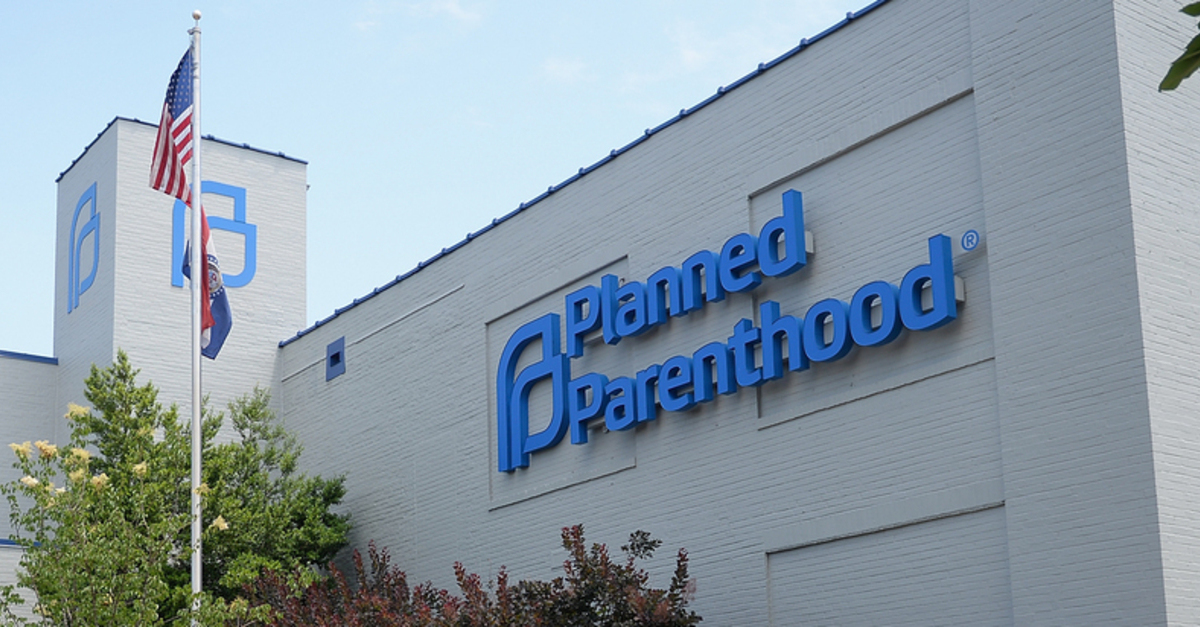
Travis County District Judge Maya Guerra Gamble granted Planned Parenthood’s request to bar the group Texas Right to Life and its associates from using the law’s first-of-its-kind enforcement mechanism — which incentivizes private citizens to sue any persons or entities that assists a woman with getting an abortion after a fetal heartbeat has been detected — to sue the organization.
In a three-page order, Judge Gamble reasoned that S.B. 8 created a “probable, irreparable, and imminent injury” for Planned Parenthood and individuals in the organization’s employ if they are “subjected to private enforcement lawsuits” under S.B. 8.
“Money damages are insufficient to undo the injury to Plaintiffs, their physicians, and staff if the Defendants are not enjoined from instituting private enforcement lawsuits against Plaintiff under SB8. Further, money damages would be less complete, less practical, and less efficient than injunctive relief,” Judge Gamble wrote. “Conversely, the Defendants will not be harmed if the Court restrains them and anyone in active concert and participation with them from instituting private enforcement lawsuits under S.B. 8 against Plaintiffs, their physicians, and staff.”
As previously reported by Law&Crime, S.B. 8 is unique in its method of enforcement. The law creates a private cause of action for literally person to bring a lawsuit against anyone in Texas who “aids or abets the performance or inducement of an abortion, including paying for or reimbursing the costs of an abortion through insurance or otherwise . . . regardless of whether the person knew or should have known that the abortion would be performed.” The measure also allows successful S.B. 8 plaintiffs to “damages in an amount of not less than $10,000.”
Because the law is effectively enforced by private citizens as opposed to government officials, the typical approach to having a judge block the law by suing the government is not available to plaintiffs, as highlighted by the nation’s highest court this week.
The U.S. Supreme Court refused to block implementation of the law, which took effect on Wednesday, issuing a 5-4 order later Wednesday night that included dissents from Chief Justice John Roberts and Justices Sonia Sotomayor, Stephen Breyer, and Elena Kagan. Breyer, Kagan, and Sotomayor each joined one another’s dissents. While Roberts said he would have voted to block the implementation of the law immediately and on an emergency basis, he did not personally join the dissents penned by the three liberal justices.
Helene Krasnoff, the vice president for public policy litigation and law at the Planned Parenthood Federation of America, praised Judge Gamble’s ruling in a statement Friday evening — but emphasized that the organization’s work to permanently block the law was far from over.
“We are relieved that the Travis County district court has acted quickly to grant this restraining order against Texas Right to Life and anyone working with them as deputized enforcers of this draconian law,” Krasnoff said. “This restraining order offers protection to the brave health care providers and staff at Planned Parenthood health centers throughout Texas, who have continued to offer care as best they can within the law while facing surveillance, harassment, and threats from vigilantes eager to stop them.”
“But make no mistake: this is not enough relief for Texas,” she added. “Planned Parenthood will continue fighting for the millions of Texans affected by S.B. 8., doing everything we can under the law to restore Texans’ federal constitutional right to access abortion.”
Read the full order below.
[image via Michael B. Thomas/Getty Images]